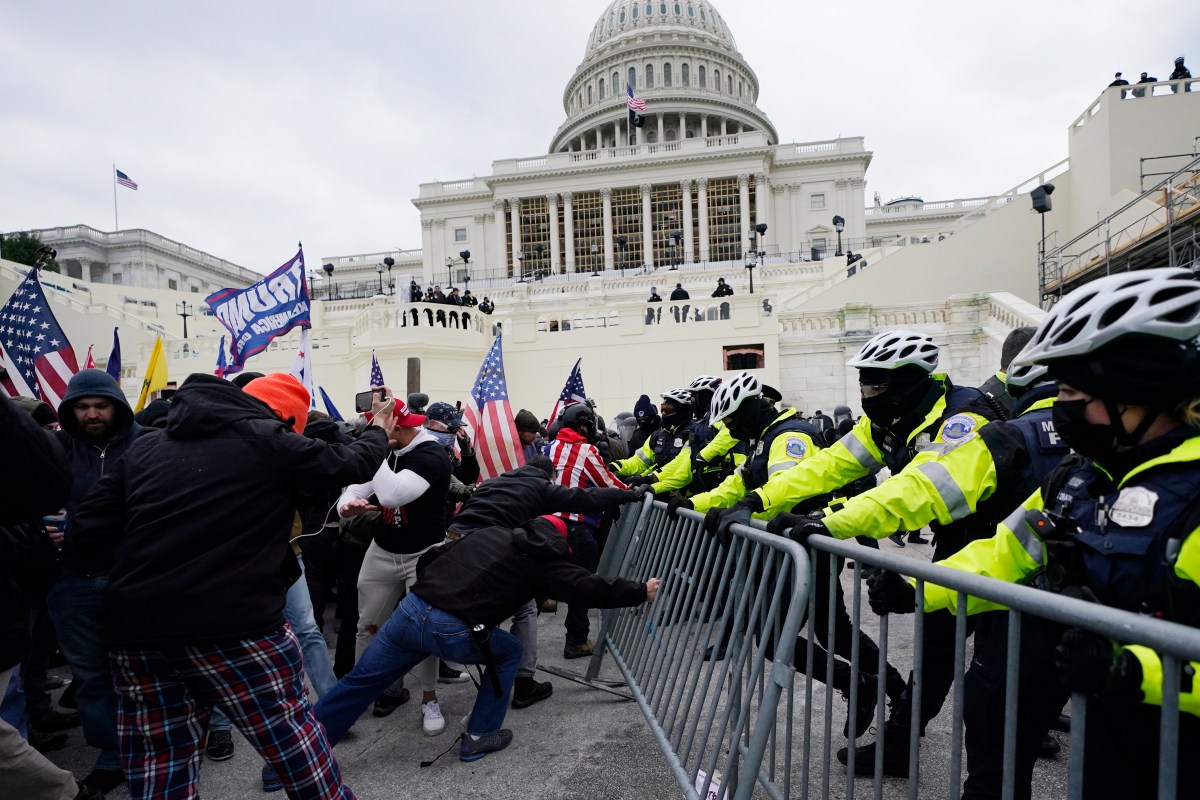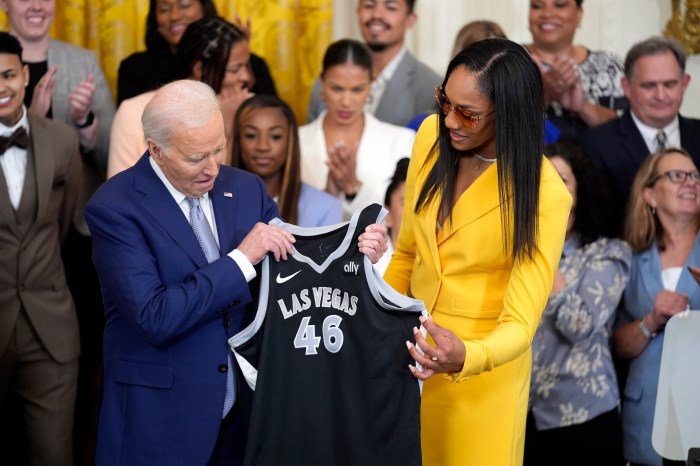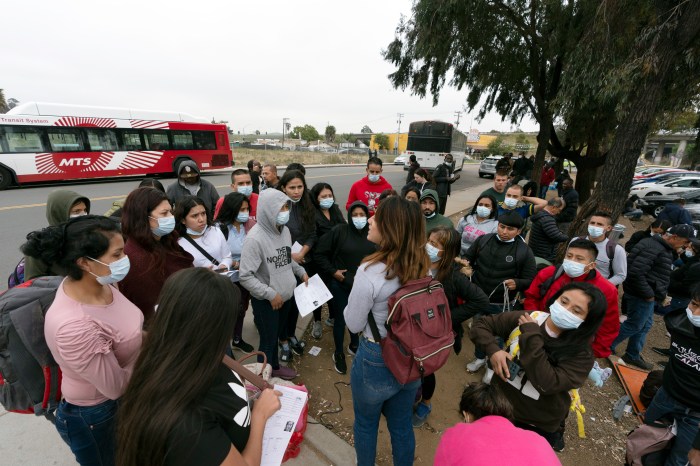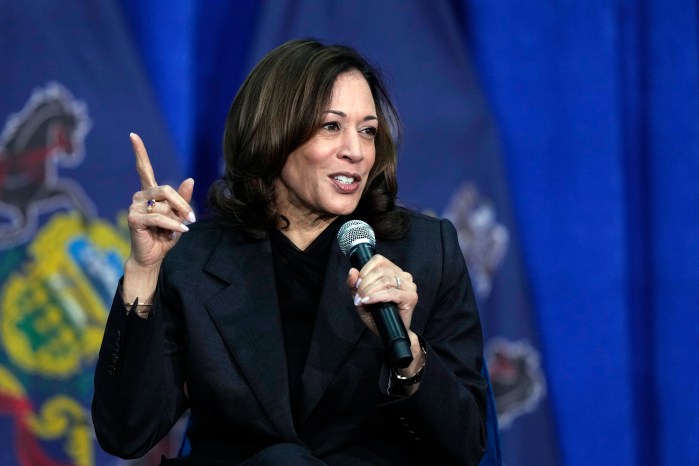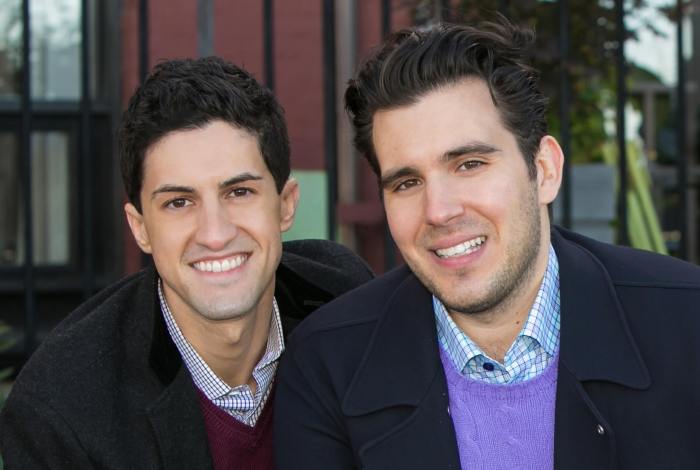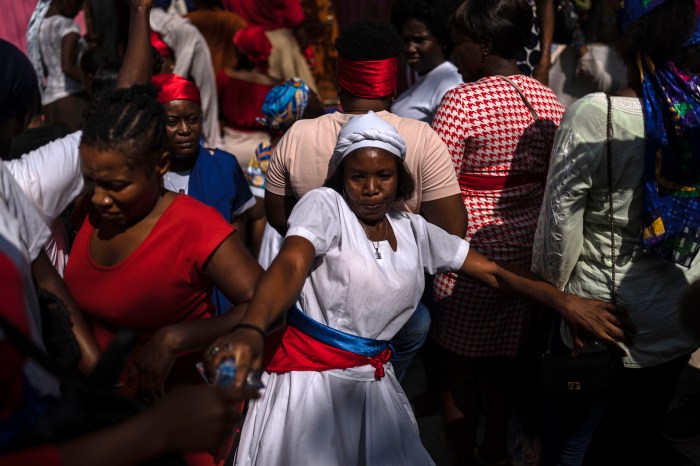CHARLESTON, W.Va. (AP) — For Derrick Evans, being part of the mob that stormed the U.S. Capitol wasn’t enough. The former West Virginia lawmaker wants to make his path to the halls of Congress permanent.
On the other side of the metal barricades that day, Police Officer Harry Dunn couldn’t stand what he saw as he defended the Capitol and its inhabitants from rioters on Jan. 6, 2021. Ultimately, the Maryland resident watched lawmakers he had protected vote to acquit former President Donald Trump and deny the violence and trauma that led to the deaths of some of his fellow officers.
On Tuesday, Evans and Dunn will make bids for U.S. House seats in their respective state primaries. They come into the election with dramatically different interpretations about what happened that day, and their performance in Tuesday’s primaries in West Virginia and Maryland could hint at whether voters’ opinions about the attack and its meaning have changed over time.
In terrorizing the Capitol for an entire afternoon, rioters wielded pipes, bats and bear spray. They used flagpoles as weapons, brutally beat police officers, chanted that they wanted to hang Vice President Mike Pence, broke through the glass and busted through doors as lawmakers frantically evacuated. A Georgia man bragged that he “fed” a police officer to the mob. More than 100 police officers were injured, many beaten and bloodied. At least nine people who were there died during and after the rioting, including a female rioter who was shot and killed by police.
More than 1,350 people have been charged with federal crimes related to the Capitol riot. Over 850 of them have been sentenced — roughly two-thirds received prison terms ranging from a few days to 22 years.
The two candidacies “symbolize a shift on the part of the two big parties regarding their commitment to law and order,” said Timothy Naftali, a senior researcher at Columbia University’s School of International and Public Affairs.
It’s remarkable, Naftali said, that on the same day, a former police officer could become a Democratic nominee while Republicans could “select an unrepentant felon” in Evans, who “proudly displays the fact that he violated the law on Jan. 6.”
“That is a split screen that one might not have been able to imagine 15 years ago,” he said.
While Evans is seen as a longshot to unseat an established incumbent and doesn’t have the fundraising advantage Dunn enjoys in Maryland, their candidacies at least raise the possibility that they could serve together while holding starkly different views of the violence and destruction of Jan. 6. But even if Dunn wins and Evans loses, he’d be serving alongside dozens of Republicans who have come to view the defendants as “hostages.”
Dunn, a 40-year-old Democrat, resigned last December from the Capitol Police after more than 15 years of service. He was four years short of pension eligibility.
“I’m running for Congress because the forces that spurred that violent attack on January 6th are still at work in our country today, and as a patriotic American, I believe it is my duty to step up and defend our democracy,” Dunn said.
Dunn leads all candidates in fundraising by wide margins in Maryland’s 3rd District race, with $4.6 million raised and $714,000 cash on hand, according to his latest campaign finance report with the Federal Election Commission.
Evans, a 39-year-old Republican and avid Trump supporter, calls himself the only elected official who “had the courage” to stand behind efforts to temporarily halt certification of President Joe Biden’s 2020 election victory. He livestreamed himself on Facebook cheering on what he described as a “revolution.”
Evans was arrested two days after the riot and resigned from his West Virginia House of Delegates seat a month before the 2021 legislative session. He pleaded guilty to a felony civil disorder charge and served three months in prison. At his sentencing hearing, Evans apologized for his actions, but he did an about-face upon leaving prison. He began portraying himself as a victim of a politically motivated prosecution.
Evans once called himself a Democrat, finishing sixth out of seven candidates in a state House primary in 2016. He then switched to the Libertarian Party in the general election and finished last among five candidates.
Evans is taking on West Virginia 1st Congressional District Rep. Carol Miller, also a big Trump backer. In 2022, Miller received 66% of the vote in a five-candidate GOP primary en route to winning her third term in Congress.
Miller is focused on her own accomplishments and endorsements, not any criticism from Evans or his status as a Jan. 6 defendant.
“I don’t think about him at all,” she said.
Dunn is among nearly two dozen Democrats running in Maryland’s 3rd Congressional District, where incumbent Democrat John Sarbanes is not seeking reelection. The heavily Democratic jurisdiction stretches between Baltimore and the nation’s capital.
Trump and New York Rep. Elise Stefanik have referred to Jan. 6 defendants who went to prison as “hostages,” reflecting a shifting tone among some conservatives toward the violent attempt to overturn the election result. Evans wrote a 2023 book titled “Political Prisoner: The Untold Story of January 6th.”
“I kind of think it fits into the general theme of what’s viewed as accepted political behavior among some Republicans in the 2020s that probably wouldn’t have been the case 10-20 years ago,” said Scott Crichlow, an associate political science professor at West Virginia University. “Specifically, I think it fits into the general Derrick Evans sphere of behavior. But also that seems to more and more kind of fit, with at least among some Republicans, what you want to see candidates doing and saying today.”
Later this month, another convicted Jan. 6 defendant, construction superintendent Chuck Hand, is running in a GOP U.S. House primary in southwest Georgia’s 2nd District. Hand faces three other Republicans on May 21 for the right to take on longtime Democratic incumbent Sanford Bishop. Hand and his wife, Mandy Robinson-Hand, were convicted of misdemeanor parading and picketing at the Capitol. Both were sentenced to 20 days in federal prison.
Both Hand and Evans echo false claims still made by Trump that the 2020 election was stolen.
Dunn is repulsed by such rhetoric.
“I won’t sit on the sidelines while Donald Trump and his MAGA allies in Congress try to tear our country apart,” he said, referring to Trump’s “Make America Great Again” slogan.
How much legitimacy there is to rioters’ candidacies remains to be seen. None of those seeking public office have gained much traction with voters so far.
In New Hampshire, Capitol riot defendant Jason Riddle plans to run in a crowded GOP primary for the state’s 2nd District U.S. House seat. The candidate filing period for the Sept. 10 primary is in early June. Incumbent Democratic Rep. Annie Kuster announced in March that she won’t seek a seventh term. Riddle was sentenced to 90 days in prison for helping himself to some wine from a lawmaker’s liquor cabinet and stealing a Senate procedure book that he later sold.
In Arizona, Jacob Chansley, the spear-carrying rioter whose horned fur hat, bare chest and face paint made him one of the riot’s more recognizable figures, served about 27 months of a 41-month sentence. He hoped to run as a Libertarian in Arizona’s 8th Congressional District seat but failed to meet a deadline to turn in required petition signatures to get his name on the ballot.
Tuesday’s primaries in Maryland and West Virginia will offer a more tangible test.
“On the one hand, Evans is looking at it as something to be proud of. Dunn’s looking at it as something that should never happen again,” said Crichlow. “And in that way, these two campaigns really do kind of capture fundamentally different perspectives about the last few years in politics and what politics will look like going forward.”

